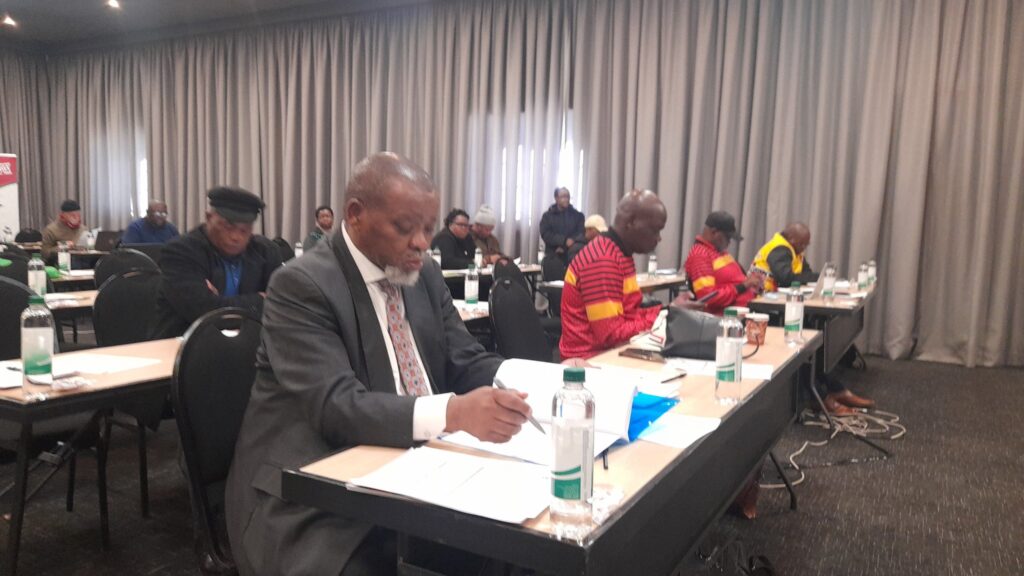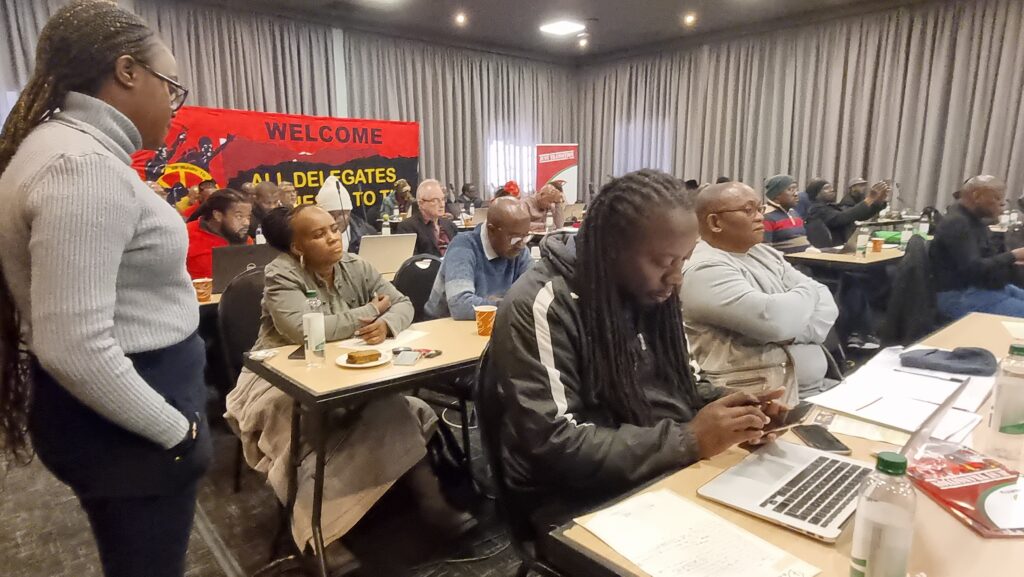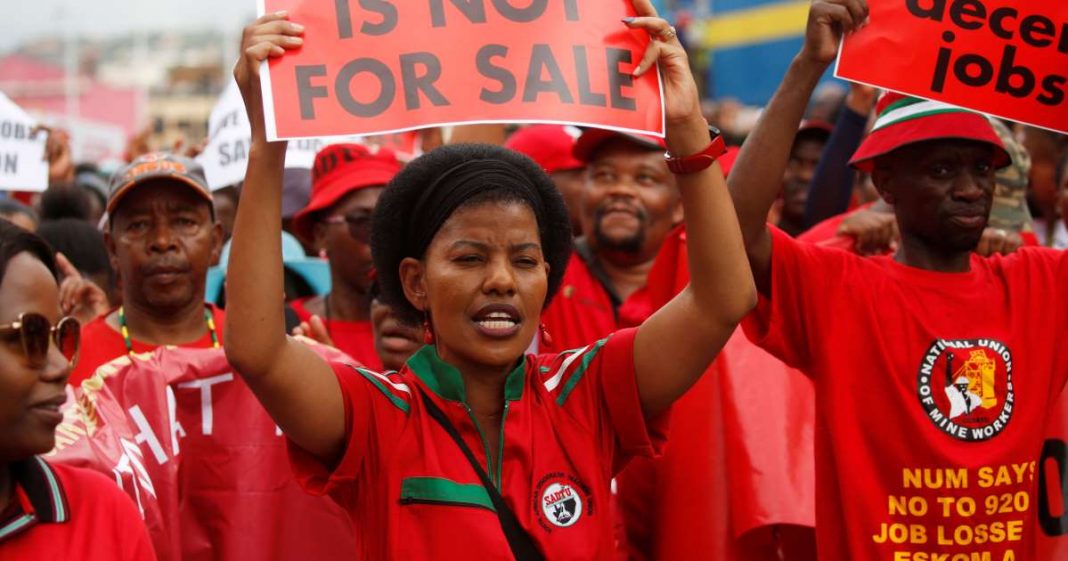PHUTI MOSOMANE
The Congress of South African Trade Unions (Cosatu) convened an Energy Summit and called for the government to ensure a Just Energy Transition while discussing measures to end load shedding.
The two-day Summit, on 20 and 21 June included its affiliated, relevant Ministers, the Presidential Climate Commission, and Alliance Partners, the ANC and the SACP.
The summit came as a result of a decision taken at Cosatu’s 14th National Congress to
convene an energy summit, to among others, discuss measures to practically support the Energy Action Plan to end load-shedding, address criminality in and around Ekom, improve the performance of power stations and to identify interventions to protect and create jobs.
“It is critical that the Energy Transition does not send workers to the unemployment queue or condemn communities, in particular in Mpumalanga, to poverty, despair or hopelessness,” Cosatu Head of Policy Lebogang Mulaisi said.
Mulaisi said the government and business need to take this matter seriously and move from a state of commitment to one of action.
“We need to invest in the skills of workers in the value chain and affected communities and to have job plans in place. Investments in local renewable energy manufacturing capacity need to be expedited,” she said.

In an economy battling a stubbornly high unemployment rate of over 42%, the Federation said the country cannot afford to leave any worker or community behind.
Summit delegates also emphasised the role of the government in ensuring that Eskom is not hollowed out through privatisation and while the country continues to push for a public pathway for renewable energy, in particular, the power utility must be supported in investing in its own generation capacity.
“The Federation takes the issue of energy democracy very seriously and we believe that if a just transition is implemented in the manner that Cosatu envisages, where there is transparency and meaningful engagement with workers and communities at the core of the transition, that it can be a Just Energy Transition,” Mulaisi added.
She said it is through collaboration and commitment to a fair and just transition that South Africa can address the energy crises and the other socio-economic challenges.
Cosatu said it is preparing for engagements on updating the Integrated Resource and Energy Plans to ensure a reflection of the energy needs of workers and the poor, achieve energy democracy and unlock economic growth.

While it is opposed to the national Treasury’s conditions on the debt relief package for Eskom that prohibit the power utility from investing in new generation capacity over the next few years.
This constrains the utility from participating meaningfully in renewable energy generation and places it in danger of perpetual load shedding as its energy fleet continues to age and show wear and tear from constant high levels of use, delegates said.
“Cosatu will continue to push for this decision to be reversed. The state needs to drive renewable energy generation and not simply abandon it to the private sector,” she said.
Speakers at the Summit spoke about how load shedding continues to threaten economic growth and job creation and the ability of workers to earn salaries while businesses struggle to keep operations going when experiencing blackouts of up to 10 hours a day.
Cosatu said it is only a matter of time before load-shedding induces inflation, resulting in further unaffordable interest rate hikes.
There is a need to engage extensively on the current energy crisis we are faced with as a country, the Summit declared.

INSIDE POLITICS



